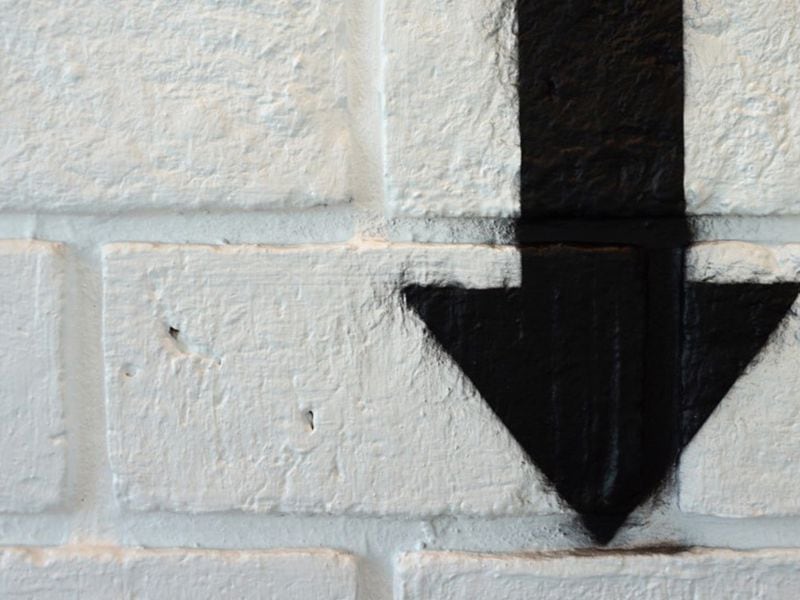Do you have trouble falling asleep or staying sleeping asleep at night? If so, you're not alone. But thankfully, there are a number of things you can do to improve your sleep experience. From reading in bed to a soothing cup of tea, there are ways to get a better night's sleep. One of our favorite sleep hacks is doing some light yoga before bed.
Practicing yoga and breathing techniques calms your nervous system, which helps your body relax enough for sleep. However, not all poses will help you achieve this goal. You'll want to aim for relaxing movements that help calm your body and clear your head. If yoga sounds like something you'd like to try, keep reading to see the top yoga poses we recommend for better sleep.
For more natural ways to get better sleep, try these seven sleep aids for insomnia, or check out our sleep tips from CNET's wellness editors.
Read more: Best Mattresses for 2024
How yoga can help you sleep
Yoga, much like any form of exercise, can be a beneficial way to unwind and alleviate stress. Research suggests that engaging in yoga may lead to reduced levels of cortisol, the hormone associated with stress. The extent of cortisol reduction may vary depending on factors such as the frequency and intensity of yoga practice. Additionally, some studies have shown promising results regarding yoga's impact on depression symptoms. Yoga can complement traditional treatment approaches and promote overall well-being.
So, what does this mean for your sleep? Well, cortisol levels have a significant influence on sleep patterns. Higher cortisol levels are often associated with difficulty falling asleep and staying asleep. A study conducted in 2019 found that incorporating yoga into one's routine can have a positive effect on treating and alleviating symptoms of insomnia. These findings suggest that practicing yoga may offer potential benefits for improving sleep quality and overall sleep health.
9 yoga poses to try before bed
These poses are for any level of experience and are easy enough for beginner yogis. While moving between these poses, remember to pay attention to your breath and where you feel most tension in your body. Breathe and try to relax if you experience any discomfort. Move through these poses for about 20 to 30 minutes before bed.
Read more: Best Yoga Mats for 2024
1. Cat-cow pose
To get into this pose, start on your hands and knees. Your hands should be shoulder-width apart, and your knees should be below your hips. Take a deep breath and tilt your head towards the ceiling while also sticking up your pelvis -- this should mimic a "cow." Then, on your exhale, arch your back and bring both your head and pelvis down like a "cat." You can repeat these two motions a few times before moving on.
2. Forward fold
This pose is as easy as standing up straight and leaning over to reach for your toes. If you are able, place your hands on the ground. If you are unable to touch your toes, you can do a half-forward fold and grab below your knees. Looking for a challenge? Try reaching around your ankles and holding on. Make sure your back is straight and you are taking deep breaths.
3. Bridge pose
Start by lying down on your back, legs and arms stretched out and on the ground. Take a deep breath, raise your core off the ground and shift your arms closer to your body to balance. Your knees should be at a 90-degree angle. Your hands can lie flat, or you can bring them together underneath your core.
4. Happy baby
An easy pose to transition into after Bridge -- start this pose on your back. Lift your legs to the ceiling and out a little past your shoulders (or however far you can go). Then, grab onto the outside of your feet with both hands. Gently rock left and right to relieve tension in your lower back.
5. Legs-up-the-wall
You will need to clear a space beside a wall for this pose. Facing the wall, lie on your back and walk your legs up high or lift your hips with your arms. Your hips can be against the wall or a little away. Once you get in a comfortable spot and you feel like you can balance, stretch your arms out beside you. This pose is great for destressing and improving your circulation.
6. Child's pose
You can start this pose by kneeling or getting on your hands and knees. Tuck your feet underneath your hips and bring your head close to the ground. Reach your hands out in front of you, stretching your spine. The further you reach, the better the stretch will be for you.
7. Seated twist
If you are coming out of Child's pose for this next one, sit back up and extend your legs out in front of you. Cross one leg over the other, pulling the heel of the crossed leg to your outer thigh. With the opposite arm, cross your body and twist yourself, pushing with your elbow on the raised knee. Twist and breathe. Repeat with the other side before moving on.
8. Butterfly pose
From a seated position, straighten your posture and press the bottom of both your feet together. Placing your hands on your feet, attempt to press your hips as low as you can to the ground. The lower you go, the bigger the stretch. If you are looking for more of a challenge, move your feet closer to your body.
9. Head-to-knee pose
This is a basic pose. Start in a seated position with your legs out in front of you. Bring one foot to the inner thigh of your opposite leg and extend your hands out over your extended leg. Sit up taller, breathe deeply and grab ahold of your foot in front of you. If you can't fully reach your foot, no problem: Grab your ankle or the back of your knee. Lean into the stretch and try to bring your forehead to your knee. Repeat on the opposite side.
Still want more? Learn how getting some sun can improve your sleep, which foods to eat for a happiness boost and how the Scandinavian sleep method might save your relationship.
The information contained in this article is for educational and informational purposes only and is not intended as health or medical advice. Always consult a physician or other qualified health provider regarding any questions you may have about a medical condition or health objectives.


/cdn.vox-cdn.com/uploads/chorus_asset/file/19704536/acastro_200207_3900_firefox_0001.0.jpg)




:quality(85):upscale()/2024/08/06/667/n/1922794/4bc1ce8866b23aaf319c84.46755244_.png)

 English (US) ·
English (US) ·